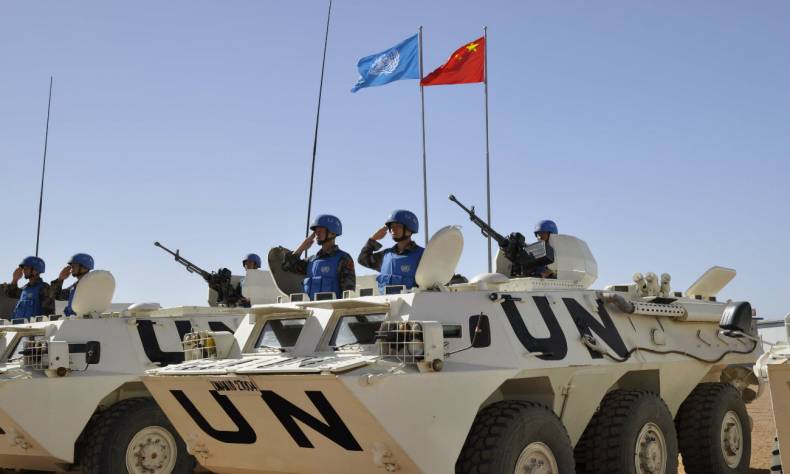
“Operation Red Sea” Reflects the Real Battle
The recent smash-hit “Operation Red Sea” has gained widespread attention for the Chinese military. The highly-acclaimed film is loosely based on the evacuation of Chinese citizens and foreign nationals from Yemen during Yemeni Civil War.
By Ji Mingkui
The recent smash-hit “Operation Red Sea” has gained widespread attention for the Chinese military.
The highly-acclaimed film is loosely based on the evacuation of Chinese citizens and foreign nationals from Yemen during Yemeni Civil War. It tells the story of how a squad of 8 soldiers from the Chinese Navy’s elite special forces, Jiaolong Assault Team, performed an evacuation mission in the war. Even though the mission is full of hazards and difficulties, soldiers still lived up to the belief of “not a single Chinese will be left behind”. The absolute discipline and practical capabilities of the Chinese soldiers have inspired audiences and given them a sense of national pride and the rise of the country.
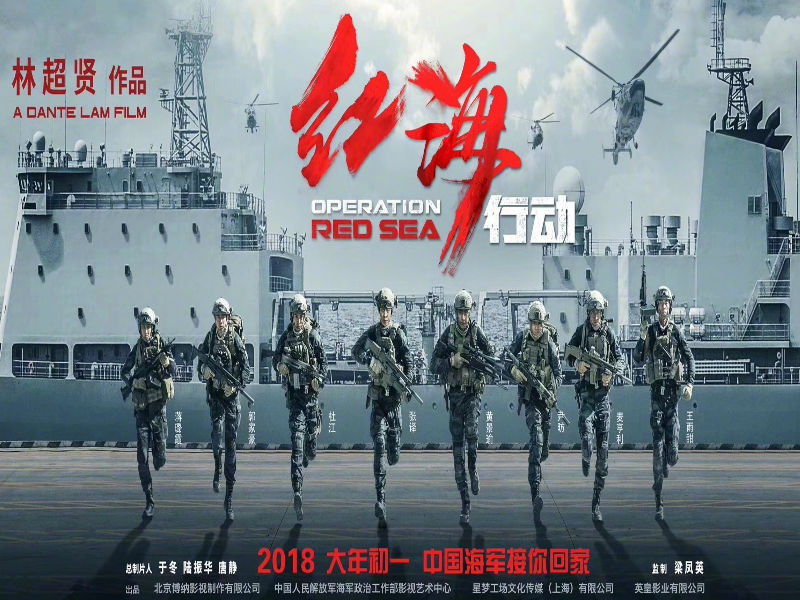
Another reason is the increasing international profile of the Chinese people’s liberation army. Whether in “Wolf Warrior 2” the blockbuster from last year, or in daily life, China’s People’s Liberation Army (PLA) can always be seen at the forefront of rescue and relief work, quelling conflict and providing armed relief.
The Braves Fearless, the Strong Invincible
As China gains a greater voice in international affairs, China’s approach to economic globalization is also eliciting an enthusiastic response. Changing times are giving the Chinese military brand new missions – it must protect China’s overseas interests, support economic cooperation among nations, safeguard the security of China’s overseas enterprises and the rights of overseas Chinese, and carry out evacuation when they find themselves in danger.
At the same time, the Chinese army must shoulder a series of international duties, including peacekeeping, combating pirates, sea rescue, and maintaining maritime order. In order to accomplish its historical and other missions, it is necessary to make the Marine Corps an independent army service branch to meet the needs of our times.
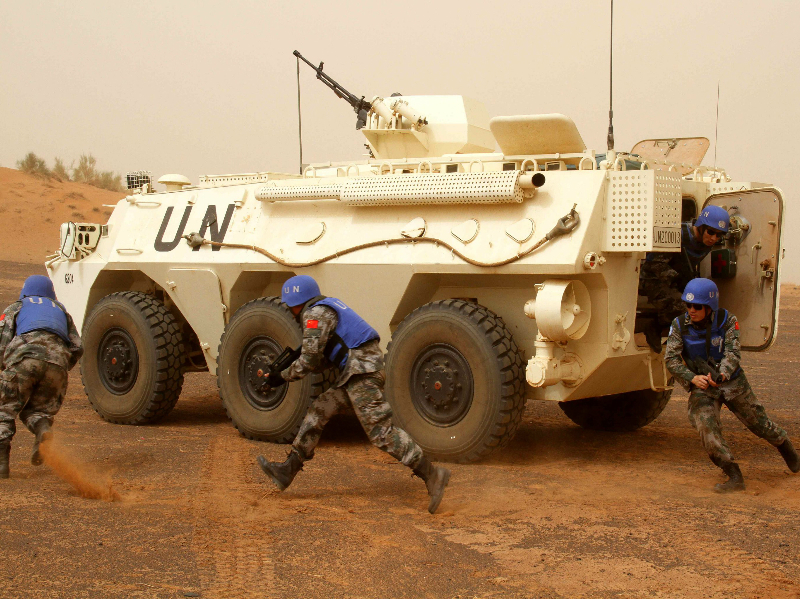
Under the new historical conditions, China’s integration with the world is expanding, and the peacekeeping missions assigned by the UN Security Council are getting heavier. Confronting an unstable and restless world, the PLA must obey the Party’s command, and become a military force that can react in moment, and once mobilized, will always win.
The brutal terrorists, helpless refugees, and dangers and difficulties confronted by the Jiaolong Assault Team in “Operation Red Sea” are just one side of the problems that the Chinese army face in their peacekeeping mission – the full situation is far more complex. UN peacekeeping missions should be performed under the unified command of the UN Secretariat and the headquarters of regional peacekeeping forces, which require strict discipline on the part of the action team in protecting regional stability and the interests of local people. Intricate regional issues, imbalanced economic development, conflicts in different interests, religions, tribes, resources, problems of terrorism and extremist forces, populism and the intervention of the major powers can all add complexity to the missions.
China’s fourth peacekeeping infantry battalion to South Sudan recently succeeded in passing the readiness evaluation of the United Nations Mission in the Republic of South Sudan(UNMISS). The evaluation standard covers seven criteria, including basic military qualities, crisis management, and the ability to protect ordinary people. All the evaluation criteria are strict and the standards are high. This was the first all-round evaluation of the Chinese peacekeeping infantry battalion conducted by UNMISS since its arrival, testimony to the fact that the Chinese army will adhere to the resolutions of the UN, and at the same time display in full the spirit of the Chinese nation.
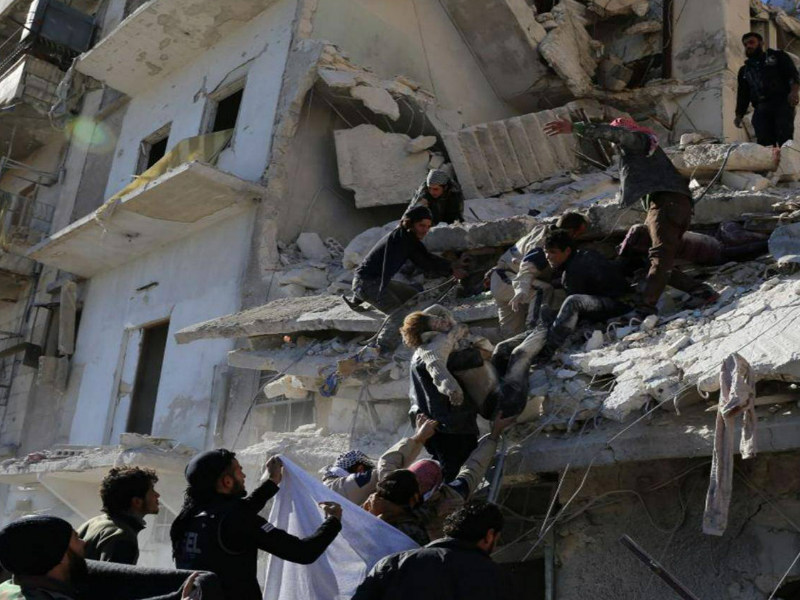
Many actors in battle are actually backed by enormous political forces and the support of major powers, which in turn makes peacekeeping missions another arena for political games. Behind the peacekeeping actions lies the maneuvering of more powerful political forces. War-torn Syria holds a mix of different political powers, including the US, the EU, and Russia. It also suffers from attacks from numerous armed opposition forces, including IS, the Kurds, and extremist Muslims. The Syrian government is facing pressure from various sides, each of which has a deep and intricate political background. Even though China does not interfere in Syria’s domestic affairs, its humanitarian aid is facing pressure from other forces too.
Contributing China’s Power to Upholding World Peace
China emphasizes that international peacekeeping actions should abide by the three principles of peacekeeping proposed by Dag Hammarskjöld, and on this basis necessary improvements should be made with a reasonable and responsible attitude to its theory and the actual practice according to real-life situations. More focus should also be put on the overall coordination of peacekeeping and peace-building actions. The commander of the UN Mission in the eastern theater of Mali gave notice during a conference that terrorists had launched 4 attacks in February, one of which targeted the UN peacekeeping forces. Therefore, during the peacekeeping mission, solders also need to keep drilling to prepare for possible terrorist attacks. During the night of February 22, China’s fifth peacekeeping military engineers launched a camp security drill in response. China hopes that countries with capability should increase their input to offer the required resources and technical support to peacekeeping actions.
The sincere efforts and sacrifices of the Chinese army in the peacekeeping missions and the glorious results it has achieved in upholding world peace have won recognition from peace-loving forces all over the world. The Chinese Blue Helmets actions in UN missions to Sudan’s Darfur, Lebanon, Western Sahara, Democratic Republic of the Congo, Liberia, South Sudan, Mali have been praised by the countries and peoples of these regions, and commended by the UN security council.
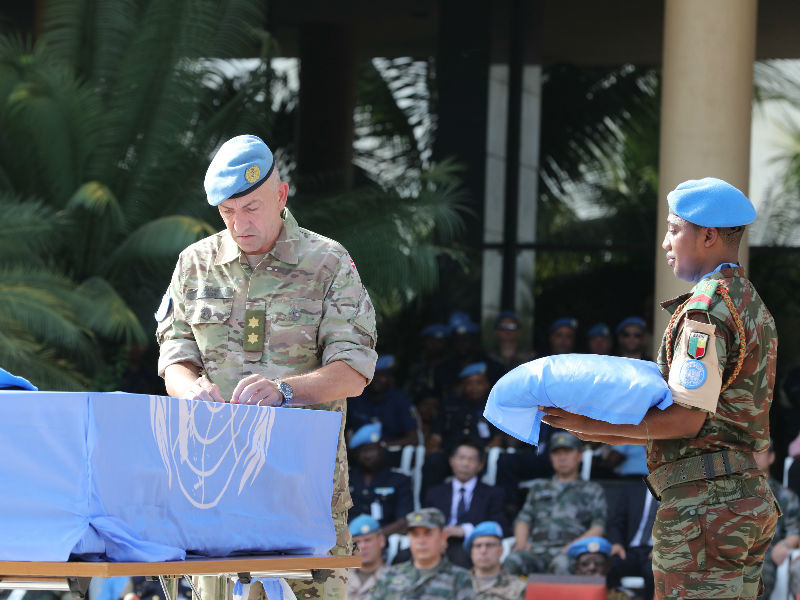
On the afternoon of July 10, 2016 South Sudan local time, the UNMISS camp in the capital, Juba, was shelled. A BFV of China’s peacekeeping infantry battalion to South Sudan was hit by a shell when it was conducting a patrol at the No.1 refugee camp. In this attack, 2 Chinese peacekeepers were killed, 2 were severely wounded, and 3 were lightly wounded. According to the UN report, from January 2008 to February 2010, 55 peacekeepers were killed in peacekeeping missions in Darfur in only 2 years. Future peacekeeping missions in Sudan’s Darfur are still beset challenges and difficulties; this is a road to peace paved by flesh and blood.
To respond to the needs of military reform, the Chinese army has made the Marine Corps an independent military branch. A brigade of motorized infantry under the 26th army of the PLA was transferred to the Marine Corps on February 15 2017, in an attempt to improve military branches and their ability to complete independent tasks. China’s Marine Corps is a highly concentrated military branch. This round of expansion and reform will elevate the corps’ quality and numbers to a new level, and enable it to better shoulder the responsibilities of protecting China’s sovereignty, marine rights and national interests. China’s Marine Corps has officially participated in the mechanism for protecting overseas Chinese and emergency evacuation. From now on military actions, including peacekeeping missions, overseas Chinese protection, and evacuation conducted by the marine corps will be regularized and normalized.
Ji Mingkui, former director of education in National Defence University, PLA, China, Major General
Editor: Dong Lingyi
 Facebook
Facebook
 Twitter
Twitter
 Linkedin
Linkedin
 Google +
Google +



